Finding Focus and Community: A look back at the benefits of a writing retreat

The African Leadership for Measuring Brain Health in Children and Adolescents (ALMA) Consortium is part of the Developing Excellence in Leadership, Training and Science (DELTAS) Foundation. The aim of DELTAS Africa is to develop Africa’s future generation of science leaders. Within this, the ALMA Consortium was established to build African research leadership capacity through training African fellows in the science of the young brain. The network is co-directed by Professor Amina Abubakar at the Institute for Human Development, Aga Khan University and Professor Kirsty Donald at the Neuroscience Institute, University of Cape Town and includes collaborating hubs in Malawi and Zambia.
Understanding early-life brain development within the unique African context creates opportunities for scientific discovery and tailored healthcare. The ALMA integrated neuroscience network aims to study these interdependent topics within the research-rich environment of its African partners. To identify the needs of African children and ensure their optimal development, three important gaps are addressed: a dearth of locally generated evidence that would inform locally relevant interventions; a lack of a critical mass of trained people to produce required evidence, and the need to leverage our centres of excellence to equip and train neuroscientists across Africa.
In line with its core mission to strengthen research leadership capacity, the ALMA Consortium organized a three-day writing retreat at the Mont Fleur Conference Venue to support fellows in their respective research journeys. The retreat, which was co-facilitated by Dr Kamkuemah together with Professor Donald and Dr Wedderburn, brought together 13 fellows ranging from Honours to Post-docs[1]. Additionally, two other supervisors joined the retreat on the second day (Dr Nynke Groenewold and Dr Pieter Naudé). Nestled in the Blaauwklippen Valley of Stellenbosch, this intimate location provided the perfect environment for focused work and genuine connection. The breathtaking views of the mountains and fynbos set the stage for an experience that imparted a renewed sense of purpose and motivation to all who attended.
Footnote [1]: Among them: Jae Eun Park (Honours). Nwabisa Mlandu, Lexie Timina, Palesa Mokgadi Malema, Mia Lombard, Layla Bradford, Dinisha Giga, Daniela Iniguez, Anastasia Omoding (Masters). Marilyn Lake, Zethembiso Ngcobo (PhD). Farai Mberi, Marlie Miles (Post-doc).
Setting up for Success: Planning the Writing Retreat
In preparation for the retreat, fellows submitted a concept note or draft of their envisioned writing output. They outlined their main objectives for each day using a SMART framework to structure their daily writing activities in a realistic and attainable way. The first day started with lightning presentations where each fellow introduced their research topic and discussed their goals, followed by a focussed writing session and group discussions and reflections in the evening. Additionally, each fellow was allocated an accountability partner by random selection. These partners checked in with each other regularly over the course of the day to provide support, review progress, and help each other stay on track with their own objectives. Some techniques used to improve focus and reduce distractions were the Pomodoro Technique and Focus Friend- a gamified focus timer app which rewards you for staying off your phone. On the final day, fellows each shared a brief outline of the progress made on their SMART goals and highlighted their key takeaways from the retreat. Individual post-retreat plans were devised, including scheduling meetings, integrating feedback, and setting milestones for drafting their remaining chapters.
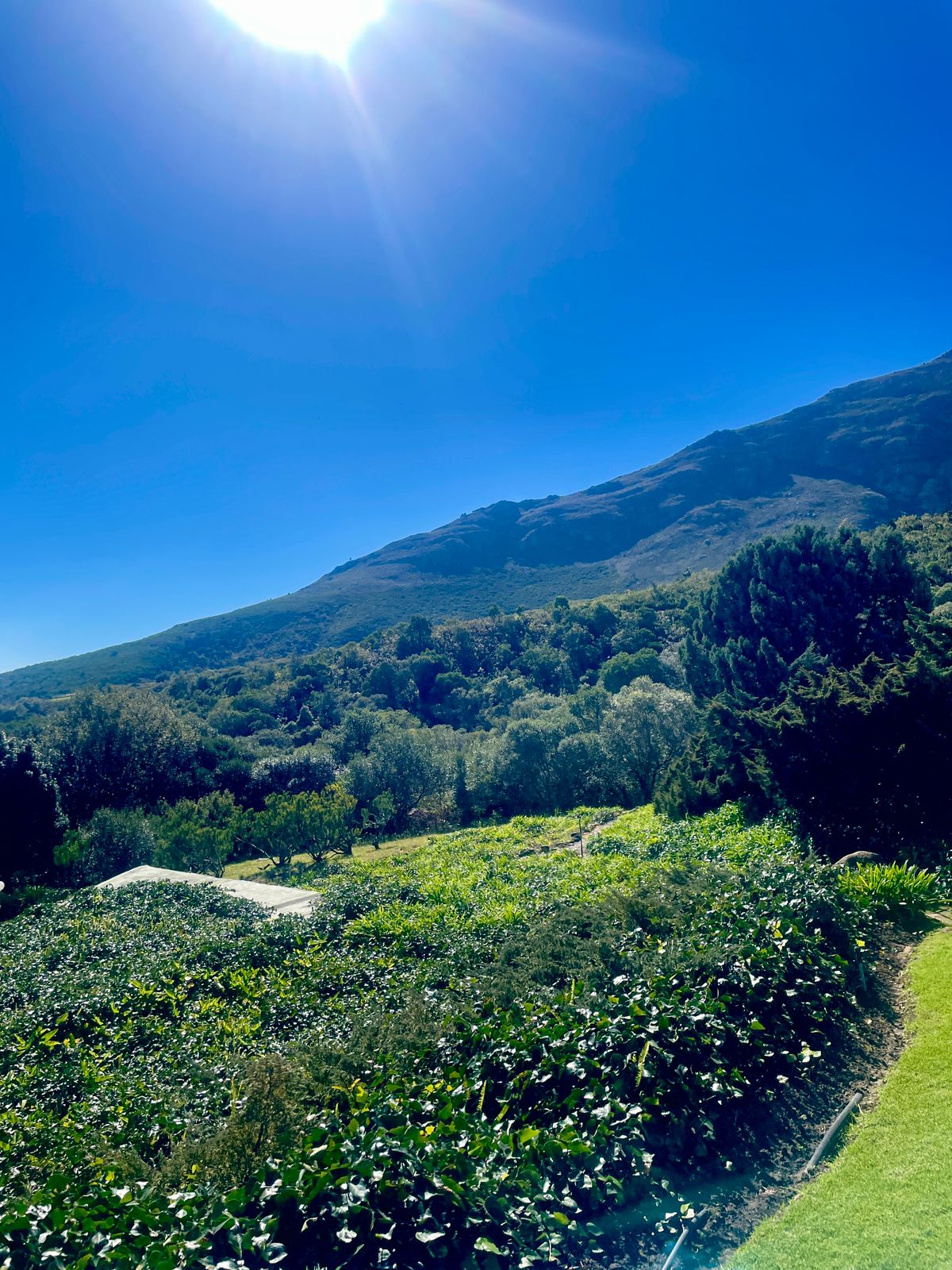
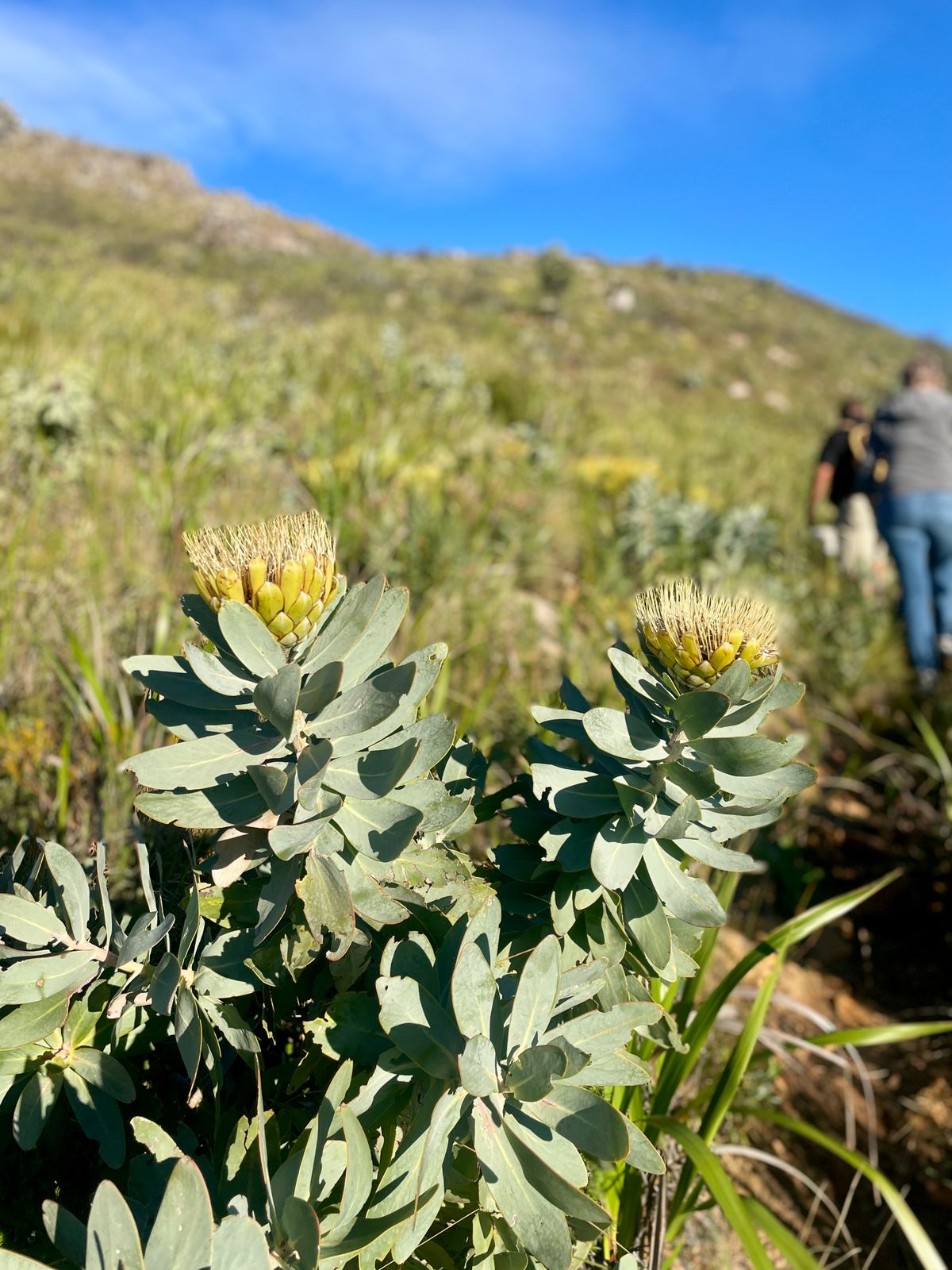
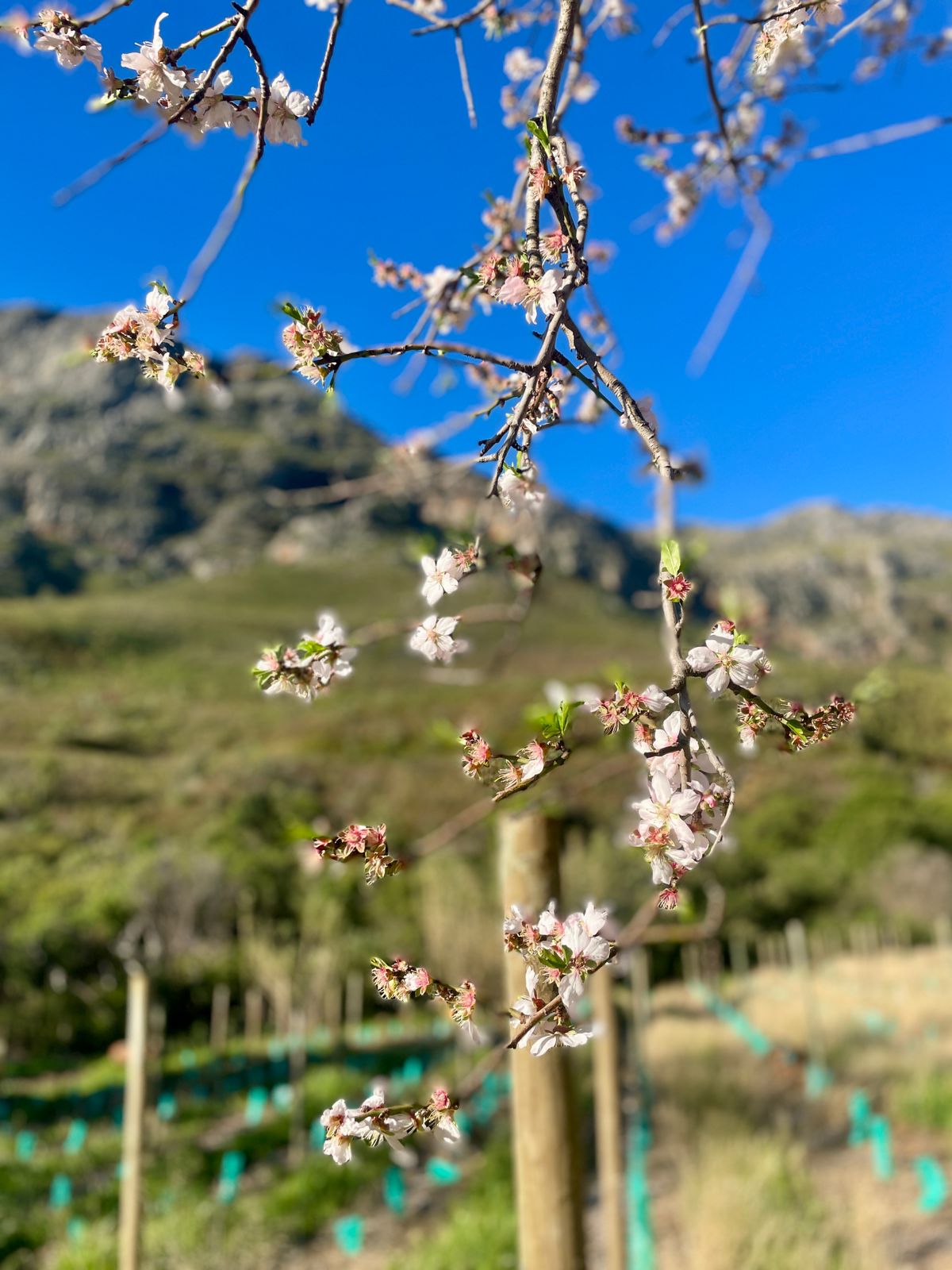
The Power of Place
The change of scenery was instrumental for unlocking new levels of productivity. The tranquil environment, with its beautiful mountains, shrubbery, and cozy atmosphere, provided the perfect backdrop for deep, uninterrupted work. The fellows appreciated the mindful space provided by the quiet mornings, waking up to the sound of birds chirping and the peaceful evenings going to sleep. This escape from the demands of day-to-day life allowed for much-needed clarity of thought.
Beyond the peaceful setting, the retreat's structure also played a crucial role. Having structured times to do nothing but write helped to maintain focus. By removing daily distractions including meetings, admin tasks, cooking, and chores, attendees could dedicate their mental energy entirely to their research projects, leading to significant breakthroughs.
"For the first time in a while, my work is all I had to focus on, and for that, in just a short span of time I found myself getting clarity on a way forward for my dissertation writing."
- Lexie Timina, Master’s Fellow
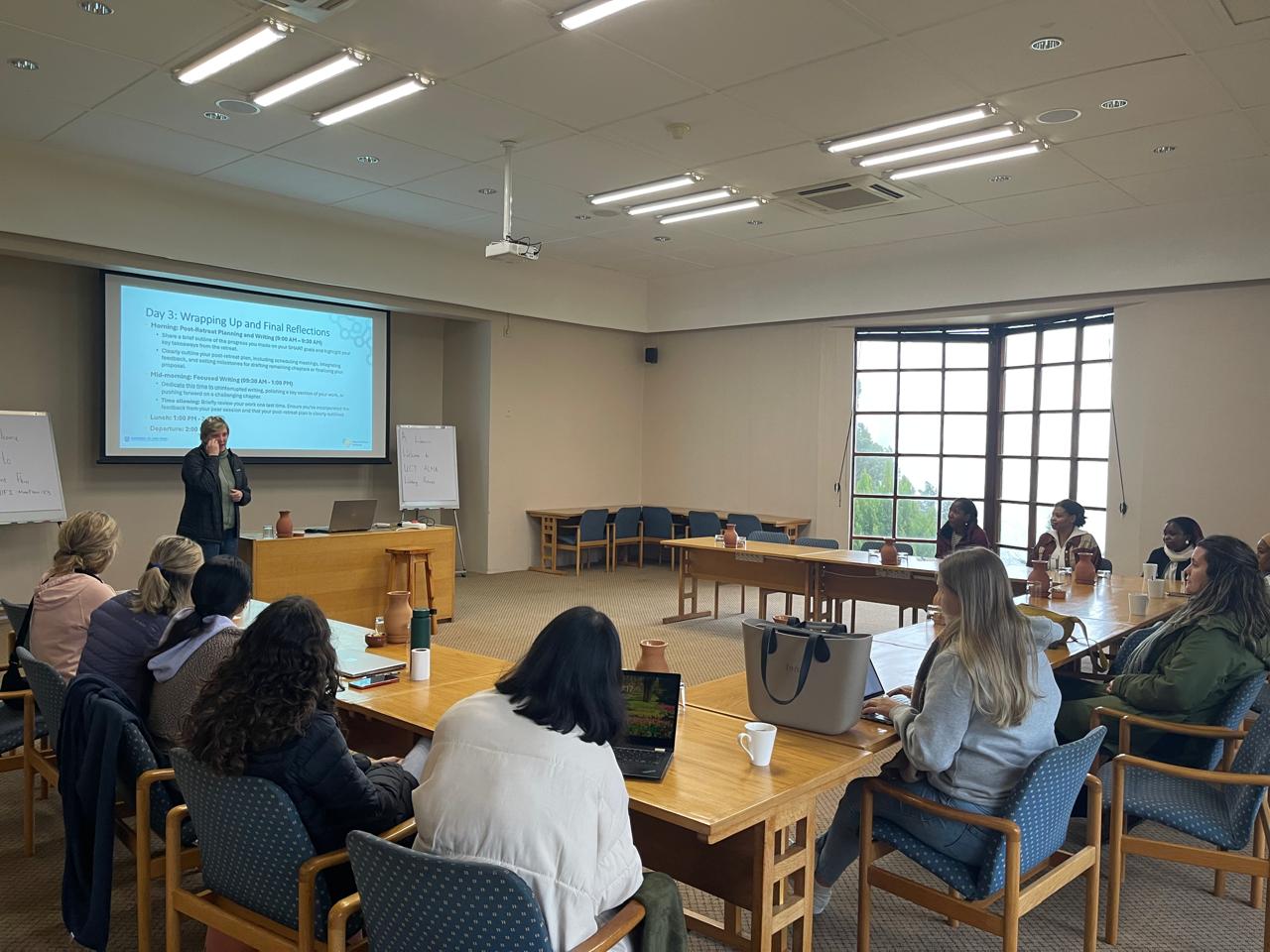
"At the writing retreat I was able to focus on my writing as there were no distractions that are present at my day-to-day spaces. Being in an environment where everyone was concentrating on their work and having an accountability partner pushed me to focus on completing the goals that I had set for myself. And also, the way it was structured ensured that one did not feel overwhelmed as there were breaks in between to mingle with the team, get to know each other better and support was always available. For me this set a framework for my activities for the next phases of my study activities."
- Zethembiso Ngcobo, PhD Fellow
Peer Inspiration and a Sense of Community
While the peaceful environment was essential, the heart of the retreat was the community it fostered. Many participants, especially those in the often-solitary world of postgraduate research, found a sense of connection and unity. Being in a space of sharing lived experiences of postgrad life provided reassurance and a sense of calm, knowing that concerns and issues were not unique. This shared experience transformed feelings of isolation into a sense of belonging and reinforced the support structures in place both from academic seniors/ mentors and other fellows. The communal setting at the lodge proved to be highly motivating, with participants finding it inspiring to be surrounded by colleagues already working on their second, third, or fourth papers.
“This was my first proper writing retreat, and it was a deeply enriching experience, offering the perfect balance of peaceful surroundings that supported focus and productivity. The tranquil environment created an ideal space for sustained writing while also fostering academic growth through exchange with fellow scholars. Beyond the work, I truly valued the sense of community, warmth, and camaraderie built with brilliant colleagues whose personalities made the retreat both inspiring and enjoyable.”
- Nwabisa Mlandu, Master’s Fellow
The retreat also provided a rare opportunity to build relationships beyond research. These connections extended into valuable academic and personal support from peers. Participants appreciated having accountability partners for consistent check-ins and the easy access to some supervisors who had availed themselves for the retreat. This mix of intense work and shared moments of laughter created a balanced and holistic experience which was crowned by a sunset hike on day one.
"The retreat made me feel part of a wonderful community. A research community where everyone asks each other for help and advice, making everyone's research even better."
- Daniela Iniguez, Master’s Fellow
Hiking: A Breath of Fresh Air and Paving the Way for Others
The writing retreat wasn't just about putting pen to paper; it was also about stepping away from the desk to find balance and build relationships. The surprise addition of a group hike provided a welcome respite from the focused work, offering a chance to recharge both mentally and physically. The hike was particularly symbolic, as we were ushered up the mountain by Mr Michael Gelant and his two enthusiastic trail dogs. As those at the front got the titbits of knowledge on the terrain and fynbos, they would pass these on to those at the back, relaying what was gleaned from the natural surrounds.
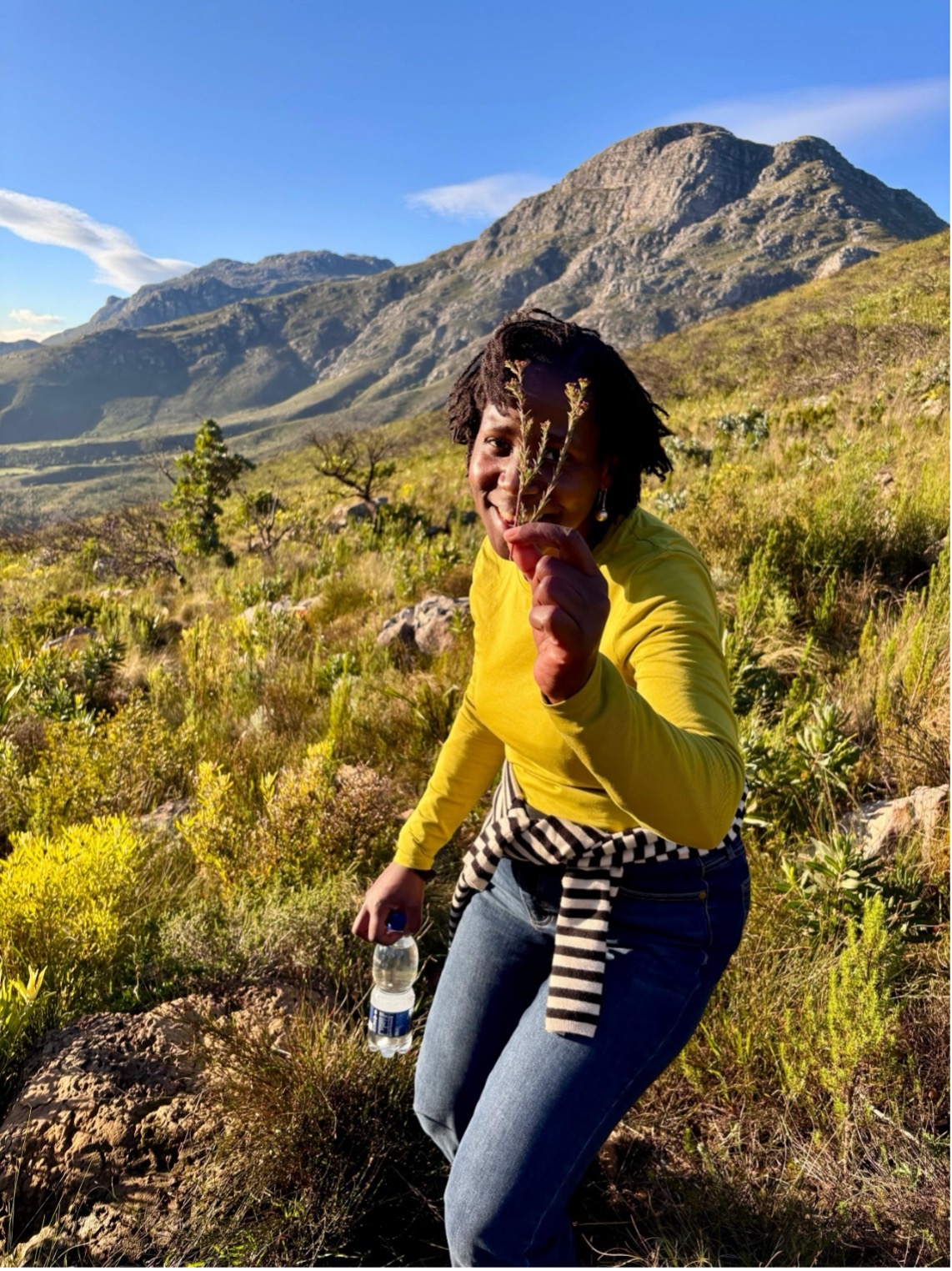
This embodied the scholarly endeavour and academic pursuit, with those who came before transferring their knowledge to those who follow. Ultimately, even those who were tempted to turn back persevered and enjoyed the culmination of the sunset view at the summit, a valuable lesson on resilience.
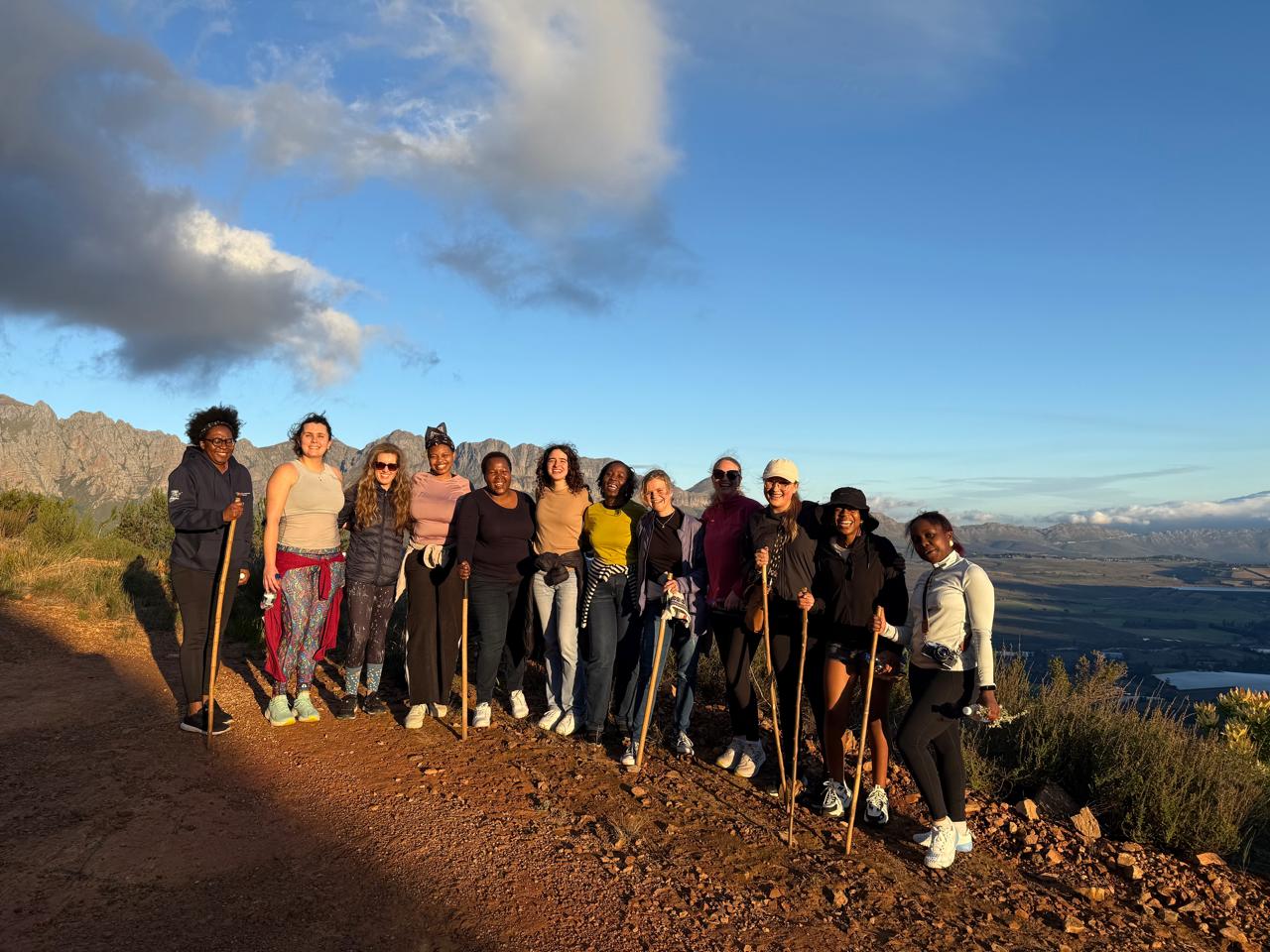
Beyond the individual benefits, the hike was a powerful tool for fostering camaraderie. It was a shared experience that broke down academic barriers and allowed fellows to connect on a personal level. One fellow described the hike as an excellent group activity that gave them a chance to connect outside of their laptops. This informal setting made it easier for people to open up, share their stories, and realize they were not alone in their academic journeys. These moments of shared vulnerability over a beautiful trail helped build a sense of community, with laughter and light-hearted conversations balancing the intense productivity of the retreat.
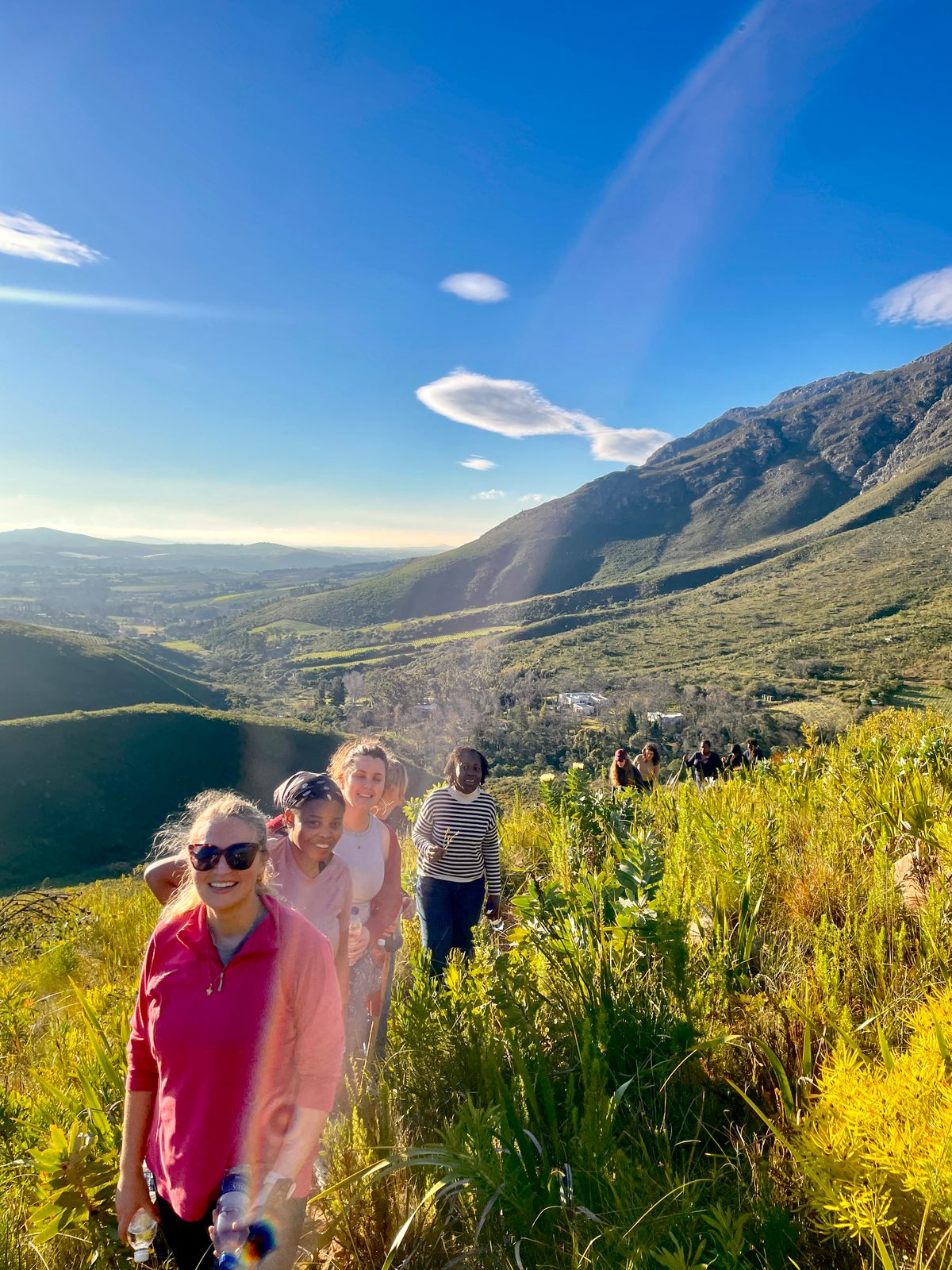
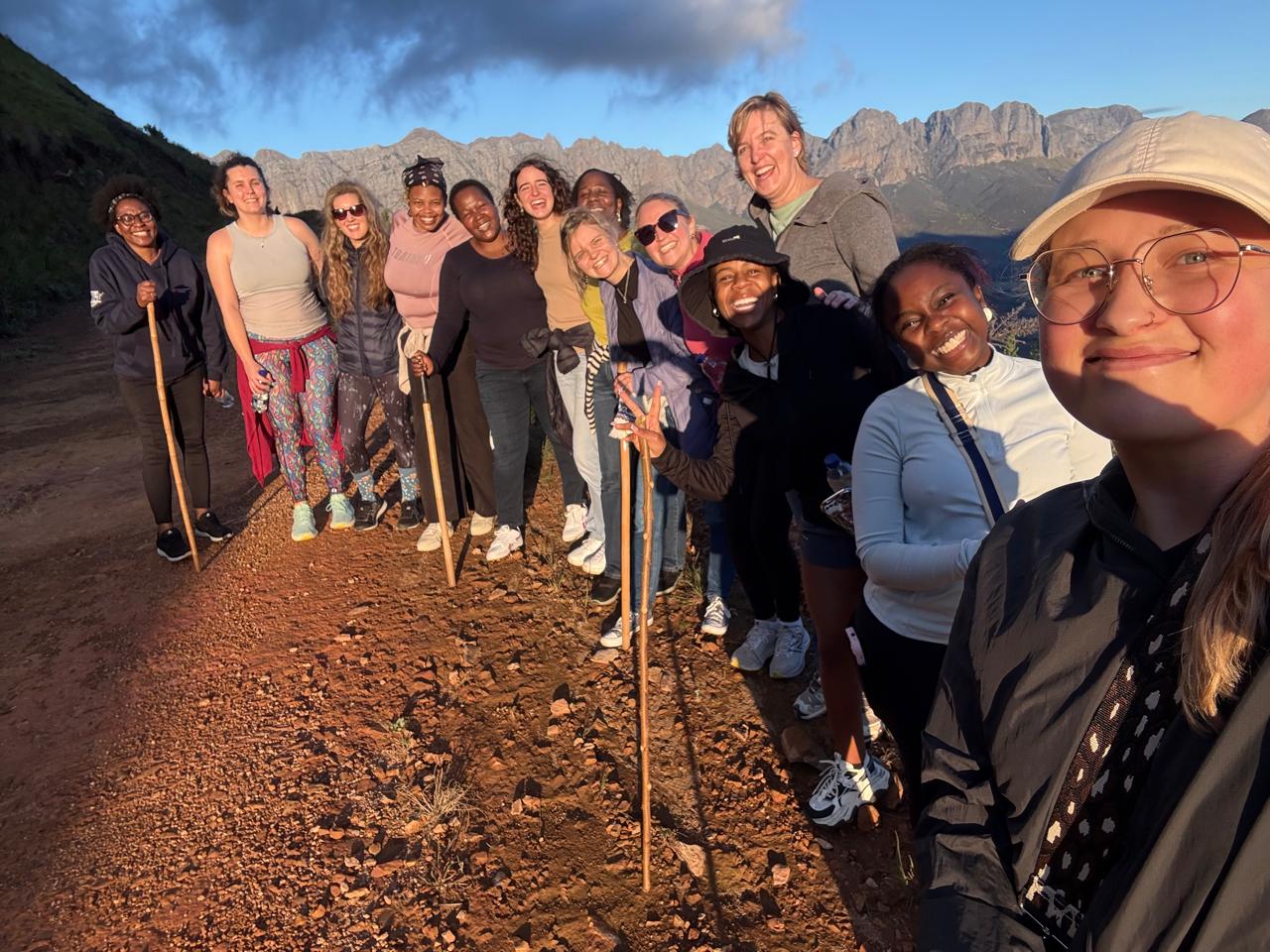
A Boost for the Road Ahead
Ultimately, the retreat was more than just a writing session; it was a powerful motivator and catalyst for the writing and research to come. Participants left feeling encouraged, supported, resilient and enthusiastic to continue with their research. The combination of focused productivity and a supportive community fostered a wonderful experience that yielded benefits on multiple levels, improving participants' progress, relationships, and personal well-being with one participant noting that the experience was "good for my soul".
"I thoroughly enjoyed the retreat and would definitely go again! It was very beneficial, especially since I had a deadline for my project proposal the same week. It really helped me focus on writing without the usual day to day distractions I would have experienced at home. I made significant progress in my writing and my understanding of my research project, especially since I had the in-person support of my co-supervisor. The service was wonderful, and the meals were delicious, and I am very grateful that my dietary requirements were catered for. I truly appreciate the opportunity to interact with and get to know the other fellows since such interactions are difficult to come across. It was a very lovely experience, thank you so much for all your efforts into organising this retreat!”
- Dinisha Giga, Master’s Fellow
We would like to thank Bridgette and her friendly and efficient team at Mont Fleur for the warm service, literally and figuratively, and delicious menu, which provided the fuel for productivity.
